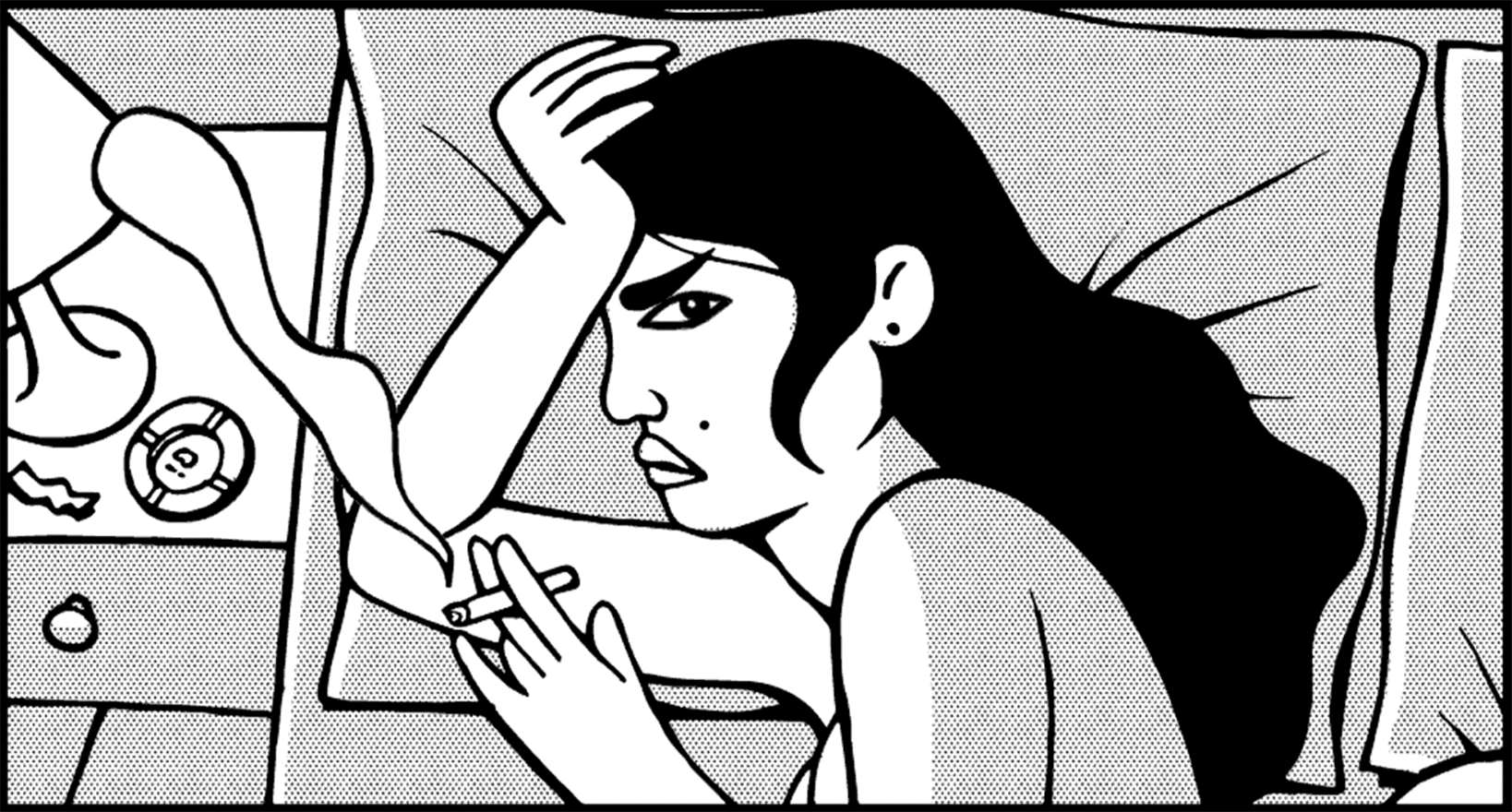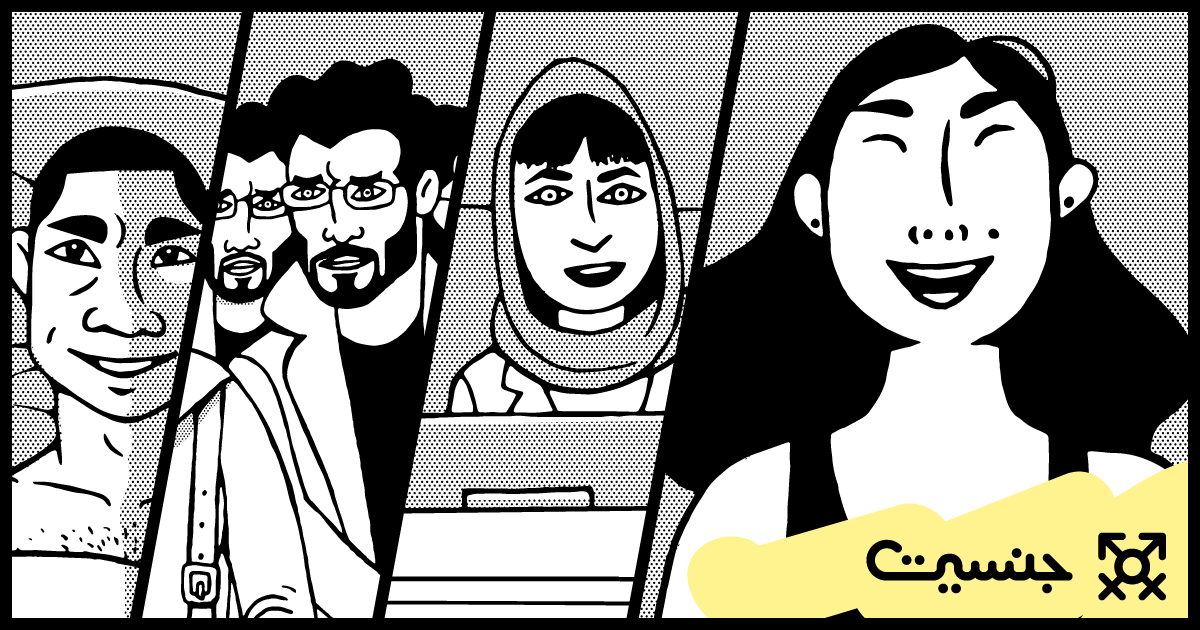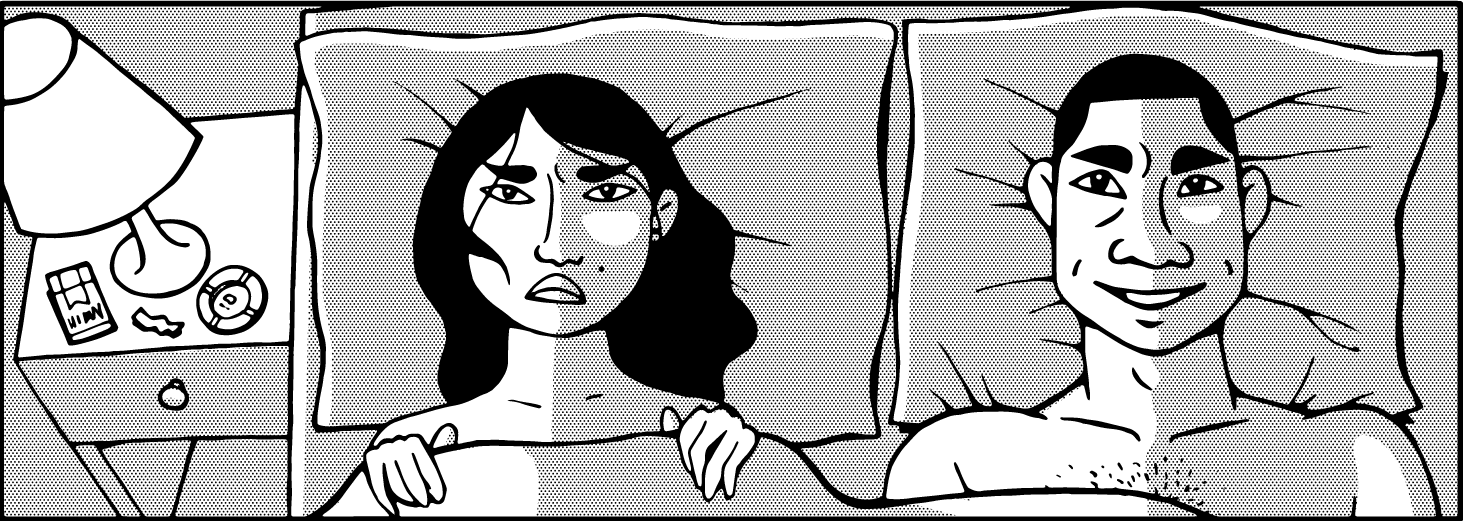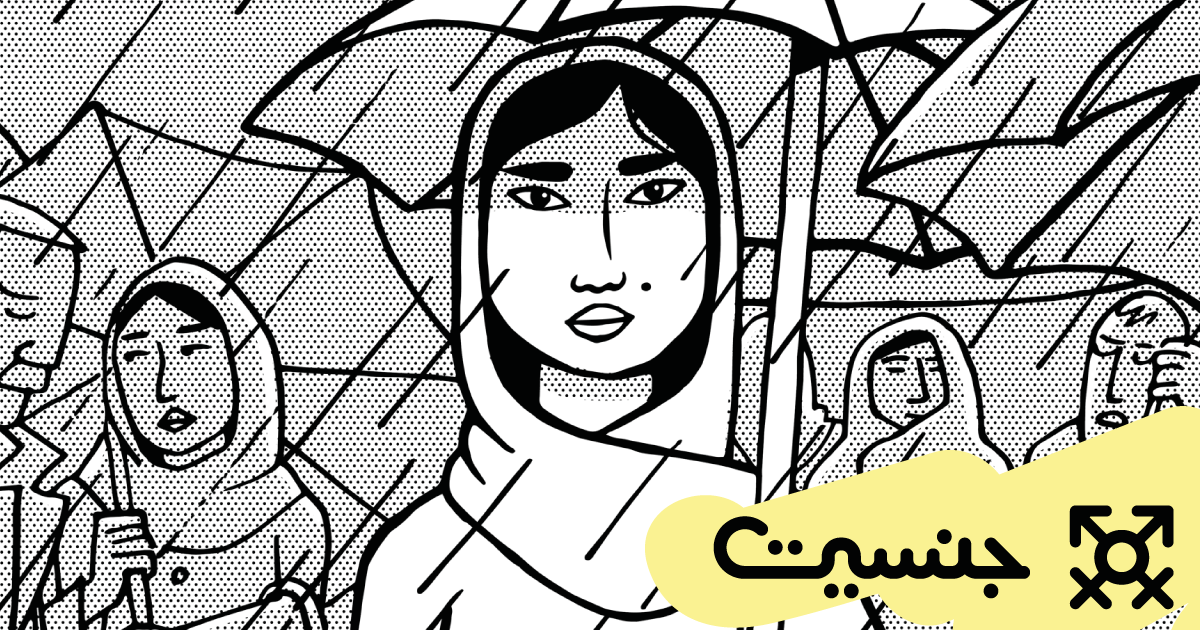Graphic novel tackles issues of contemporary Iranian identity

In an international context, Iran is often thought of as a news headline, or a generalized and vague region in the “Middle East.” When the youth in Iran make statements about pop culture and their relationship to it, like the video of Iranian youth dancing to Pharrell’s hit Happy, it immediately becomes an item of politicized news. However, with recent movies like A Girl Walks Home Alone at Night (2014), described by director Ana Lily Amirpour as the first “Iranian vampire spaghetti western,” Iran gets a chance at an international identity without the typical assumptions or politics. That said, Amirpour is American-Iranian, rather than a local Iranian resident, and it’s impossible to ignore that contemporary Iranian life is informed by Iran’s political climate, in one way or another.
Enter Jensiat—which Small Media describes as “a joint creative project in the form of a website and animated graphic novel”—to find the balance between the political and the personal. In this six-part series, written by satirist Kioomars Marzban and illustrated by Vahid Fazel, Jensiat tackles issues of cybersecurity, gender, and sexuality in contemporary Iran. It does this through protagonist Leila, who is a 34-year-old aspiring entrepreneur returning to Iran after over a decade spent studying and working abroad. This aspect of Leila’s identity highlights the diasporic nature of Iranians around the world, while also emphasizing the local situation and dynamics in Iran today.
the lives of contemporary Iranians are informed by Iran’s political climate, in one way or another
Leila’s myriad experiences include: the competition of the tech industry, the frustration of complex gender politics in the workplace and beyond, the support of those who are similarly minded—including the story’s central love interest Jamshid, an Iranian-American digital rights activist—and the thrill of heading a startup, a project Leila calls jensiat.io—the namesake of the graphic novel’s platform.
Beyond this narrative aspect, Jensiat seeks to use its platform to disseminate important information about good cybersecurity practices in people’s day-to-day lives. For example, it exemplifies the use of such platforms as Signal Private Messaging as important alternatives to platforms like Whatsapp and Telegram for more robust cybersecurity. As Mahsa Alimardani, Jensiat’s producer, told The Creators Project:
“From our knowledge of the Internet space and Internet users in Iran, we know that digital security practices are not necessarily concerns that come naturally to Iranians…We’re hoping to get fans who genuinely care about Leila’s life and struggles, and to follow along, and start raising more awareness and discussions about how to implement day-to-day technologies such as Signal or PGP.”
Jensiat‘s site and social media are written entirely in Farsi, however, the messages of the platform and the themes are important ones the world over, especially among the complex identity politics and revolutions of today. It is also essential that we learn and remember that other countries have important and nuanced contemporary politics, beyond what our knowledge and assumptions may be. Jensiat challenges these assumptions and offers Iranians a platform by Iranians on these larger issues.
Check out and keep up with Jensiat on its website. Be sure to also follow Jensiat on Facebook, Twitter, and Instagram, and also to check out other work being facilitated by Small Media.






